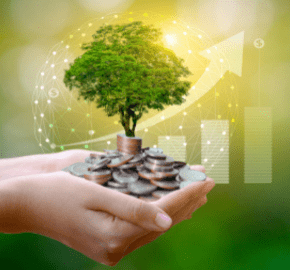Unveiling the Top 10 Recycling Facts
In an era marked by environmental consciousness and sustainable living, recycling plays a pivotal role in reducing our ecological footprint. Understanding the importance of recycling empowers individuals to make informed choices that contribute to a healthier planet. In this article, we delve into the top 10 recycling facts, shedding light on the impact of recycling on the environment and how individuals can play a crucial role in preserving our planet. Let’s dive into the top 10 recycling facts.
1. Recycling Saves Energy and Reduces Carbon Emissions
One of the key recycling facts to grasp is its significant role in energy conservation. Manufacturing products from recycled materials typically requires less energy than producing them from raw materials. For example, recycling aluminum saves a staggering 95% of the energy required to produce aluminum from raw materials. Additionally, the reduction in energy consumption results in fewer carbon emissions, contributing to the fight against climate change.
Even if you are of a dissenting opinion on climate change let me ask you this; is it not better to live in a clean house rather than a dirty house? Is it not still better to reuse materials rather than take resources from your great great grand children’s generation? We are not planning on going extinct before the sun explodes in a few billion years, and Earth’s resources are finite. Food for thought!
2. Plastic Takes Centuries to Decompose
Plastic pollution has become a global concern, and understanding the longevity of plastic in the environment is vital. It takes up to 1,000 years for plastic to decompose, releasing harmful chemicals into the soil and water during a process called Photo-Degrading. Plastic breaks down into tiny little particles that can absorb other harmful materials. By recycling plastic, we can mitigate the adverse effects of plastic pollution and conserve valuable resources.
3. Recycling Reduces Landfill Waste
Landfills are rapidly reaching their capacity, leading to environmental degradation and the release of harmful gasses. For example, Albany county in NY has 1,335,948 tons of recycling capacity per year. Meanwhile, they produce 97,859 tons per year. That cannot last until the sun explodes. Recycling diverts waste from landfills, extending their lifespan and minimizing the negative impact on ecosystems. By recycling paper, glass, and other materials, we can significantly reduce the volume of waste sent to landfills, promoting a more sustainable waste management system.
4. Recycling Benefits The Economy
Recycling is not only an environmentally conscious practice but also a sound economic decision. The recycling industry generates substantial employment opportunities, contributing to economic growth. Moreover, using recycled materials in manufacturing reduces production costs, making products more affordable for consumers. Understanding the economic benefits of recycling underscores its importance as a sustainable and financially prudent practice.
5. Every Ton of Paper Recycled Saves Trees
Paper is a widely used resource, and the impact of its production on forests is profound. Recycling Facts, recycling one ton of paper saves approximately 17 trees, 7000 gallons of water and 3.3 cubic yards of landfill space. By opting for recycled paper products and participating in paper recycling programs, individuals can contribute to the preservation of forests, which play a crucial role in maintaining ecological balance.
6. Recycling Electronics Prevents Hazardous Waste
Electronic waste, or e-waste, poses a severe threat to the environment due to the presence of hazardous materials like lead, mercury, and cadmium. Recycling electronics responsibly ensures that these toxic substances are properly disposed of or reused, preventing soil and water contamination. Many electronic manufacturers and retailers now offer recycling programs, making it easier for consumers to responsibly dispose of their electronic devices.
7. Aluminum Is Extremely Recyclable
Aluminum is a highly recyclable material, and the process of recycling it is incredibly efficient. One of the standout recycling facts is that recycling aluminum saves 95% of the energy required for primary aluminum production. 75% of all aluminum that has ever been mined is still in circulation today. Additionally, aluminum can be recycled indefinitely without losing its quality. This makes aluminum recycling a powerhouse in terms of environmental benefits, showcasing the potential for sustainable material use. So, don’t forget to take your empty can back to your nearest redemption center!
8. Recycling Reduces the Demand for Raw Materials
As the global population continues to grow, the demand for raw materials skyrockets, leading to increased resource extraction. Recycling helps alleviate this strain on the environment by providing an alternative source of materials. By utilizing recycled materials in manufacturing, industries can decrease their dependence on virgin resources, preserving natural habitats and biodiversity.
9. Single-Stream Recycling Makes It Easy
As the global population continues to grow, the demand for raw materials skyrockets, leading to increased resource extraction. Recycling helps alleviate this strain on the environment by providing an alternative source of materials. By utilizing recycled materials in manufacturing, industries can decrease their dependence on virgin resources, preserving natural habitats and biodiversity.
10. Consumers Make The Difference
One of the most empowering recycling facts is the influence individuals have as consumers. Making environmentally conscious choices, such as buying products made from recycled materials or supporting businesses with robust recycling initiatives, can drive the recycling revolution. By demanding sustainable practices, consumers play a pivotal role in encouraging industries to adopt eco-friendly processes and contribute to a circular economy.
Recycling Facts Concluded
Recycling is not merely a waste management strategy; it is a cornerstone of sustainable living. The top 10 recycling facts outlined in this article emphasize the multifaceted benefits of recycling, ranging from energy conservation and waste reduction to economic growth and environmental preservation. As individuals, communities, and industries collectively embrace recycling, we can pave the way for a greener, healthier planet. By understanding and sharing these recycling facts, we empower ourselves and others to make informed choices that contribute to a more sustainable and harmonious future.
Next Article: Debunking The Top Recycling Myths >


